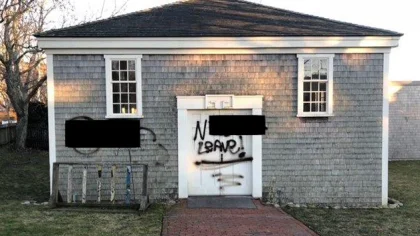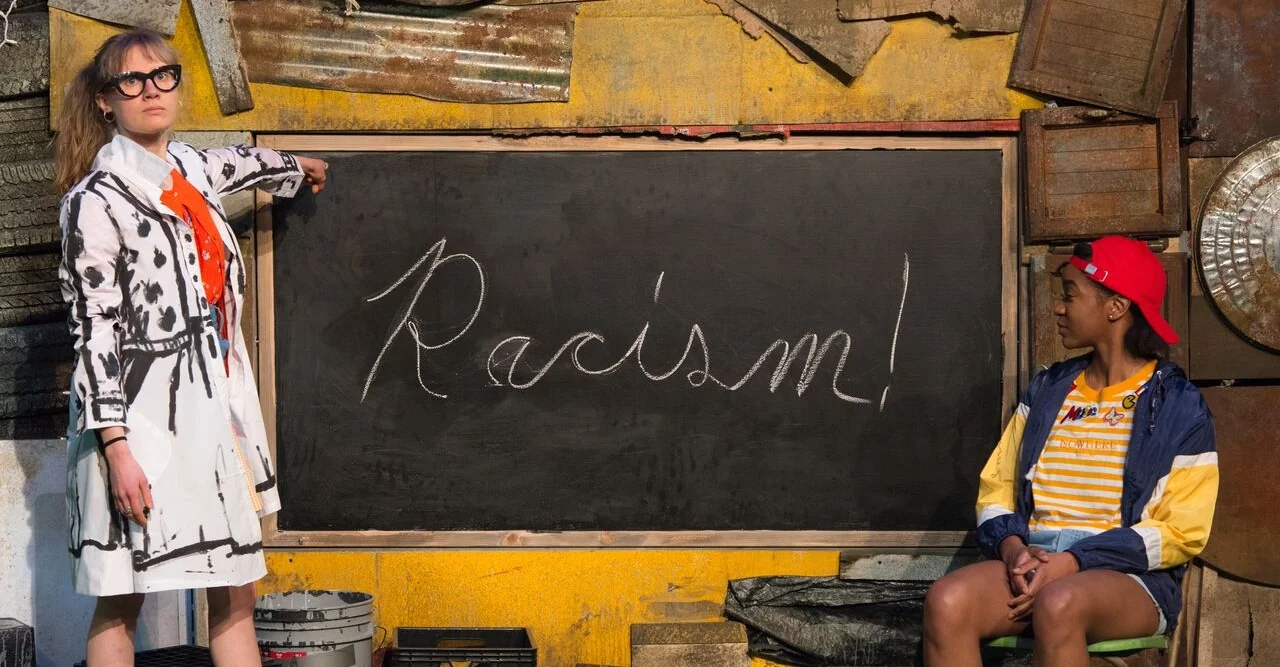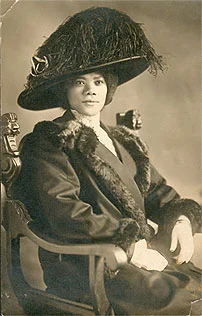OPINION - Life & Art: Racist Vandalizes a Historic Black House in Nantucket, MA
Ready Steady Yeti Go, the story of a seemingly picturesque small town experiencing racial vandalism spray painted on the house of the only black family in town, closed this weekend. And not 24 hours after it did, the staff here at Azuka got word from our house manager Mike Dees about a news story out of Nantucket, Massachusetts.
As it was reported on Sunday, the same day as our last show, a member of the Nantucket community graffitied “N---- Leave”, as well as a crudely-drawn penis, on the front door of a historic African American Meeting House. According to the Museum of African American History of Boston and Nantucket (of which the house is a part)’s website,
The African Meeting House is the only public building constructed and occupied by African Americans in the 19th century still standing on Nantucket. The small post-and-beam building, a National Historic Landmark, is the island’s most vivid reminder of a thriving 19th-century black community.
Photo credit: Nantucket Police
In Ready Steady Yeti Go, the lead kids’ misguided teacher Mrs. Apples says after an eerily similar crime takes place, “This week we learned that racism is still around.” It’s a sentiment of unintentional ignorance that I can’t help but think about in the wake of Nantucket, a town with an 87.6% white population and median family income of $129,728 as of 2010. No doubt many members of the community were shocked by the crime, despite the fact that in our current political climate the presence of racism in everyday life is very apparent. In other words, as the manager of the meeting house Charity-Grace Mofsen told the Boston Globe, “Nowhere’s safe.”
Bill Pittman
Nantucket police chief William J. Pittman says, “The community doesn’t tolerate this kind of behavior...and we’d really like to put the people who were victims here at ease”, citing the canvassing of the town to search for possible witnesses. But it's important to ask who exactly we're putting at ease. Sure, to find who committed the crime would be ideal, but this is an attack on the rich history of a black community in a now overwhelmingly white area. The victims are that community, throughout history and today, and those still around aren’t going to be put at ease. Yeti deals prominently with the exact same question, the “solution” to a crime like this, and Carly, one of the victims of the vandalism, says, “‘Okay again’? Things weren’t that okay before it happened...it was always like this. And I don’t feel okay. I don’t.” Pittman added, “My first impression of that is...we’re dealing with somebody who is obviously very immature...It’s probably more mischievous than it is sinister, but their choice of location couldn’t have been worse.” And yes, the choice of location really couldn’t’ve been worse. It's the only public building constructed and occupied by African Americans in the 19th century still standing on Nantucket. Personally, given the circumstances of the crime, it is difficult for me to believe that there was not targeted hatred behind this, by someone who had to be aware of the historical significance of the door that they vandalized. I can't speak for Pittman's politics or merits, and I am glad the authorities are taking the crime seriously; I just hope he is not one of Yeti's adults who might be doing more harm than help.
Alison Ormsby and Kishia Nixon in Ready Steady Yeti Go; photo by Johanna Austin
This is why I have been so excited to work at Azuka. Yeti was a world premiere, a completely contemporary piece written in today’s America from the perspective of unique voices. It was painfully topical, and had fresh things to say, and nothing proves that more than this incident in Nantucket. It isn’t okay, it wasn’t okay, and it won’t be okay for the foreseeable future. And we can’t only be reminded of these issues when we read about a crime like this, or when we see a play about a crime like this. We have to pop the bubble, take inventory of our privilege and actions, and not treat these as shocking isolated incidents when millions of racists have just been justified by the election of a vocal xenophobe to the Oval Office. This was a tragic crime and I couldn’t be more proud to have been part of a production that might force people to view it in a new light.
Florence Higginbotham
Florence Higginbotham, an African American woman born in 1896, bought the land on which the Meeting House stands in 1933. For years she rented it out to businesses and artists as a storage space, or studio, all the while preserving this integral part of local black history. After Higginbotham's death, her son Wilhelm sold the house to be a historic site as part of the African American History Museum.
Life imitates art imitates life. Kinda wish it didn't have to.
- Lucas




